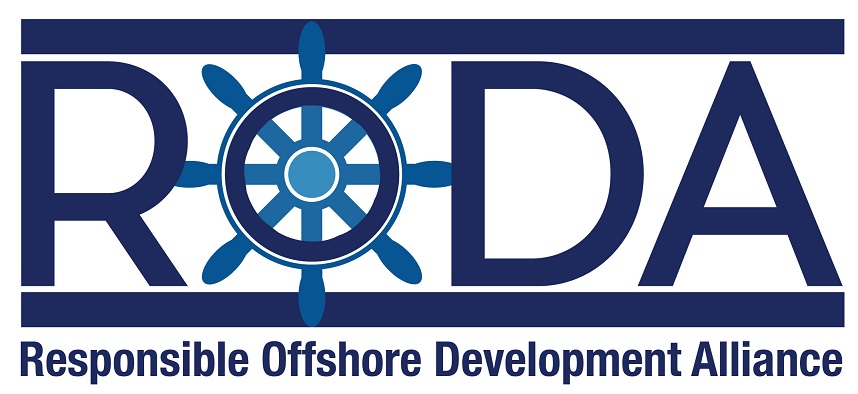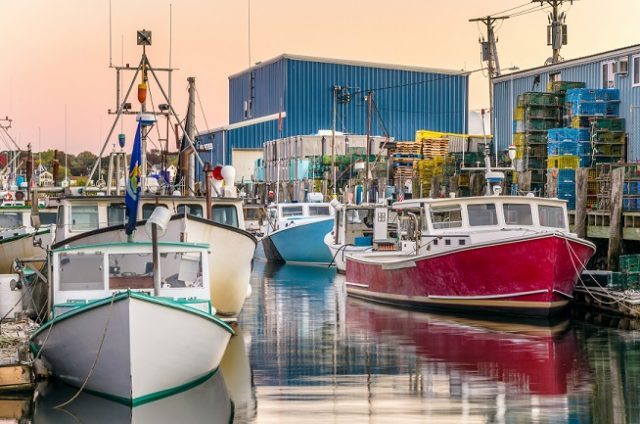Responsible Offshore Development Alliance Condemns BOEM’s Rush to a Record of Decision That Puts the Administration’s Arbitrary Goals Ahead of Fishermen Safety
Washington, D.C. Tuesday, May 11, 2021 — Responsible Offshore Development Alliance (RODA), a broad membership-based coalition of fishing industry associations and fishing companies, condemns in the strongest possible terms the Bureau of Ocean Energy Management’s (BOEM) issuance of a Record of Decision for the previously terminated Vineyard Wind 1 Offshore Wind Energy Project. BOEM continues to abdicate its responsibility to the public and leave all decision making to large, multinational corporations, including this Decision which includes effectively no mitigation measures to offset impacts to critical ocean ecosystems and commercial fisheries.
It has only included one such measure: a voluntary and non-enforceable suggestion for developers to cooperate with the National Marine Fisheries Service (NMFS) to mitigate what the Final Environmental Impact Statement characterizes as “major” impacts to scientific research. Oddly, BOEM directs Vineyard Wind to “participate in good faith” in the undescribed and unfunded Federal Survey Mitigation Program, which “may lessen long-term impacts” (but “may not” reduce the significant short term impacts). Mitigation that is poorly defined, unrequired, and unmonitored satisfies neither the public interest nor the law.
To the best of our knowledge BOEM did not even consider any mitigation measures recommended by RODA or any fisheries professionals, scientists, or natural resource managers, despite having clearly defined requests available to them.
In one pen stroke, BOEM has confirmed its scattershot, partisan, and opaque approach that undermines every lesson we’ve learned throughout environmental history: the precautionary principle, the importance of safety and environmental regulation, the scientific method and use of the best available data, and adaptive management policies. It is shocking that NMFS could sign off on a decision so inexplicably adverse to its core mission and the research, resources, businesses, and citizens under its jurisdiction.
“For the past decade, fishermen have participated in offshore wind meetings whenever they were asked and produced reasonable requests only to be met with silence,” says Anne Hawkins, Executive Director of RODA. “From this silence now emerges unilateral action and a clear indication that those in authority care more about multinational businesses and energy politics than our environment, domestic food sources, or U.S. citizens.”
In a letter signed by nearly 1700 individuals, fishing industry and community members asked BOEM for twelve mitigation measures in this Record of Decision to ensure the continued success of the U.S. fishing industry. BOEM issued no response beyond the word “received.” These reasonable requests included supporting the continuation of federal fisheries surveys, safe vessel transit, long-term biological and environmental monitoring plans, avoidance of sensitive habitat, improved communication with ocean users, collaborative framing of compensatory mitigation and gear loss plans, commitment to addressing radar and icing concerns, and prioritization of U.S. jobs.
In particular, for years fishermen have consistently requested at a minimum safe, navigable transit through the New England wind energy areas including Vineyard Wind. Industry members have sat in countless collaborative workshops, spent time and money off the water, and consistently expressed their reasonable need for safe transit from the earliest possible opportunities, all of which have been entirely ignored. The Record of Decision adjudicates against this input by stating that safe transit is “inconsistent with the goals of [Vineyard’s] proposal” and goals of the Administration. Specifically, the Record of Decision says ”the addition of a transit lane would lead to project delays for additional geophysical and geotechnical surveys. These delays would be inconsistent with the goals expressed in Executive Order (E.O.) 14008, “Executive Order on Tackling the Climate Crisis at Home and Abroad”, particularly the goal of doubling offshore wind by 2030.”
The proposed mitigation measure of spacing the turbines 1×1 nautical miles apart on its own is insufficient to ensure safety at sea for all types of fishermen and other seagoing vessels. While many fishermen supported the 1×1 nautical mile uniformity on an east-west orientation for the Vineyard Wind project over its original layout proposal, the process of soliciting and evaluating alternatives was and remains wholly flawed. We strongly oppose BOEM’s approach of giving greater credence to commenters without the relevant expertise in marine operations over the fishing industry’s expert testimony regarding safety. We do not know, nor were fishermen asked, the safety and operating impacts of this spacing across the entire coast. Instead of learning from fishermen’s experience, BOEM now rewards those who ignore traditional knowledge and shoehorn data into predetermined outcomes based on political preference or financial goals.
It is the federal government’s role to ensure inclusive and consensus-based approaches are employed at every stage of this industrial process. By cutting corners, the U.S. government is relinquishing protection for our precious ocean resources and jobs that provide healthy, low-carbon protein to Americans, and tether thousands of coastal communities to their heritage. If today’s actions set any precedent, our oceans are at risk of becoming fields of steel and fiberglass.
 About Responsible Offshore Development Alliance
About Responsible Offshore Development Alliance
Responsible Offshore Development Alliance (RODA) is a broad membership-based coalition of fishing industry associations and fishing companies — across the United States — committed to improving the compatibility of new offshore development with their businesses. The alliance works to directly collaborate with relevant regulatory agencies, scientists, and others to coordinate science and policy approaches to managing development of the Outer Continental Shelf in a way that minimizes conflicts with existing traditional and historical fishing.








